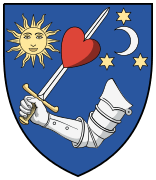Brețcu
Brețcu (Romanian: [ˈbret͡sku] ![]()
- Brețcu / Bereck
- Mărtănuș / Kézdimartonos
- Oituz / Ojtoztelep
Brețcu Bereck | |
|---|---|
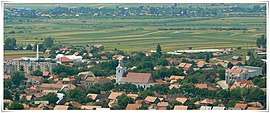 | |
 Coat of arms | |
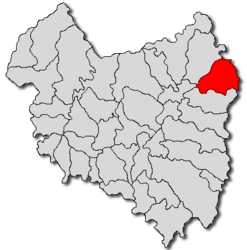 Location in Covasna County | |
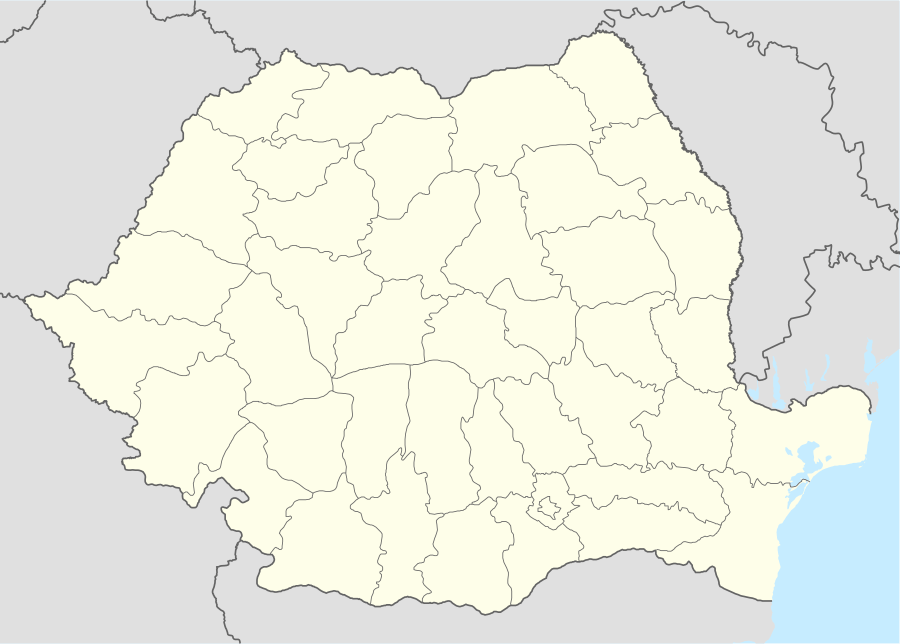 Brețcu Location in Romania | |
| Coordinates: 46°3′N 26°18′E | |
| Country | |
| County | Covasna |
| Government | |
| • Mayor | Zoltán Dimény (UDMR) |
| Population (2011)[1] | 3,550 |
| Time zone | EET/EEST (UTC+2/+3) |
| Vehicle reg. | CV |
The village has been recorded under different names: Bereczk (1476), Breczko (1482-1496), Bretzku (1787 and 1850) and Bereck (1854).
The Roman castra and settlement of Angustia and is located on the east side of the village. G. Popa Lisseanu argued that Brețcu was an old Romanian land mentioned in 1426 by King Sigismund in an official document.[2] In that document, King Sigismund offered privileges to Romanians and to their Duke (the names of some Romanians were cited: Ioan and Radul, Țacu's son). The document contains the first attestation of Brețcu village.
 Roman fort "Angustia"
Roman fort "Angustia" Statue of Michael the Brave
Statue of Michael the Brave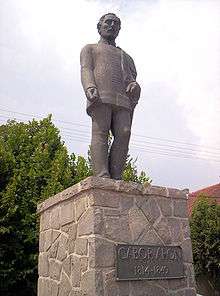 Statue of Áron Gábor
Statue of Áron Gábor
Demographics
According to the 2011 census, the commune has a population of 3,510 of which 71.46% are Hungarians and 22.9% are Romanians.[3]
Personalities
Áron Gábor, hero of the Hungarian Revolution of 1848 was born here in 1814.
References
- "Populaţia stabilă pe judeţe, municipii, oraşe şi localităti componenete la RPL_2011" (in Romanian). National Institute of Statistics. Retrieved 4 February 2014.
- G. Popa Lisseanu, Originea secuilor și secuizarea românilor, Ed. Pur Și Simplu, Bucharest, 2003, p. 69, ISBN 973-86261-4-5
- http://www.recensamantromania.ro/wp-content/uploads/2013/07/sR_TAB_13.xls
